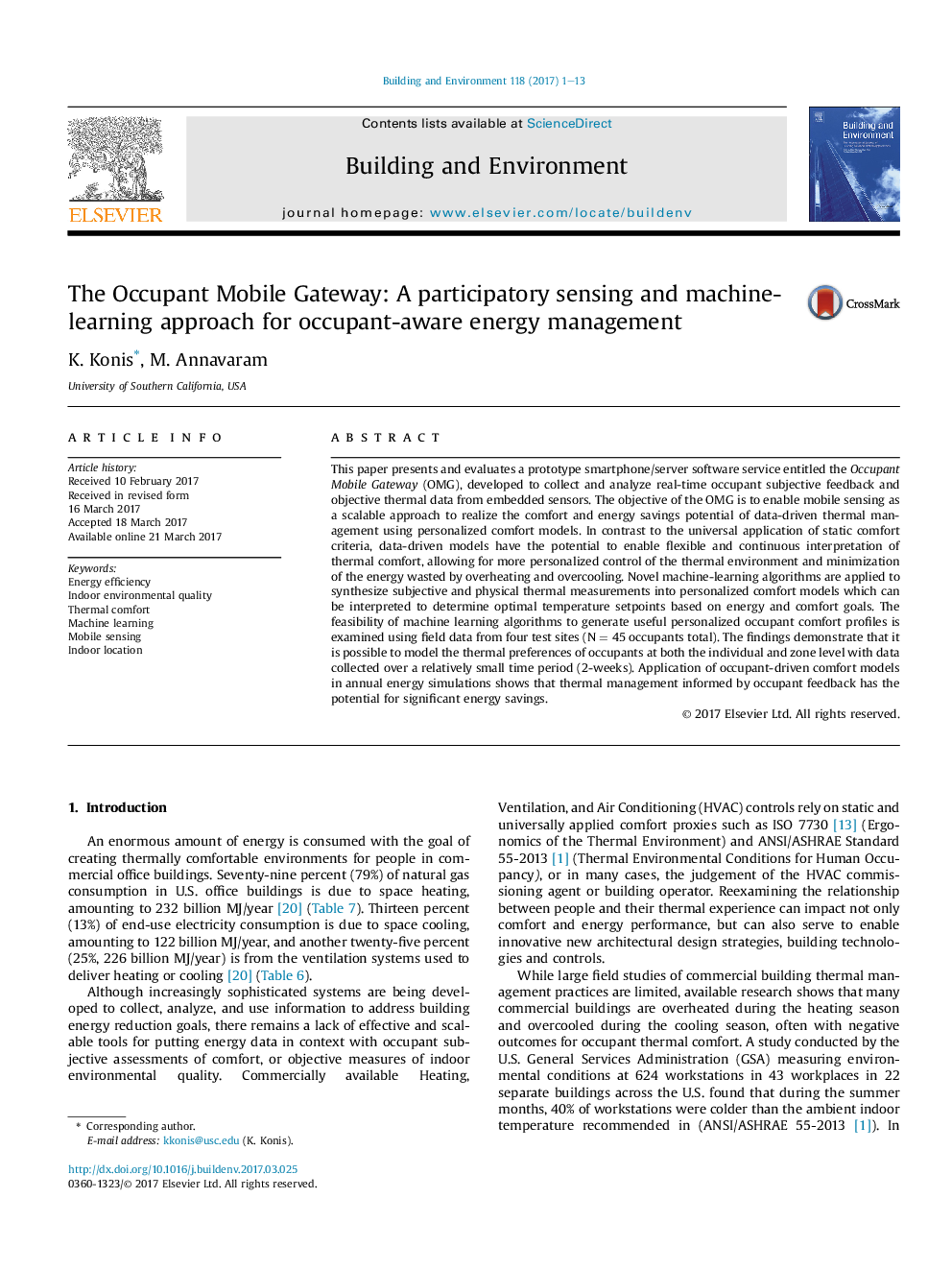| کد مقاله | کد نشریه | سال انتشار | مقاله انگلیسی | نسخه تمام متن |
|---|---|---|---|---|
| 6479249 | 1428374 | 2017 | 13 صفحه PDF | دانلود رایگان |

- A novel framework for enabling occupant-aware energy management is presented.
- A mobile sensing platform pairing physical and subjective data is demonstrated.
- Machine-learning is shown to produce accurate personalized thermal comfort models.
- Real-time learning of occupant comfort levels has potential for energy savings.
This paper presents and evaluates a prototype smartphone/server software service entitled the Occupant Mobile Gateway (OMG), developed to collect and analyze real-time occupant subjective feedback and objective thermal data from embedded sensors. The objective of the OMG is to enable mobile sensing as a scalable approach to realize the comfort and energy savings potential of data-driven thermal management using personalized comfort models. In contrast to the universal application of static comfort criteria, data-driven models have the potential to enable flexible and continuous interpretation of thermal comfort, allowing for more personalized control of the thermal environment and minimization of the energy wasted by overheating and overcooling. Novel machine-learning algorithms are applied to synthesize subjective and physical thermal measurements into personalized comfort models which can be interpreted to determine optimal temperature setpoints based on energy and comfort goals. The feasibility of machine learning algorithms to generate useful personalized occupant comfort profiles is examined using field data from four test sites (NÂ =Â 45 occupants total). The findings demonstrate that it is possible to model the thermal preferences of occupants at both the individual and zone level with data collected over a relatively small time period (2-weeks). Application of occupant-driven comfort models in annual energy simulations shows that thermal management informed by occupant feedback has the potential for significant energy savings.
Journal: Building and Environment - Volume 118, June 2017, Pages 1-13